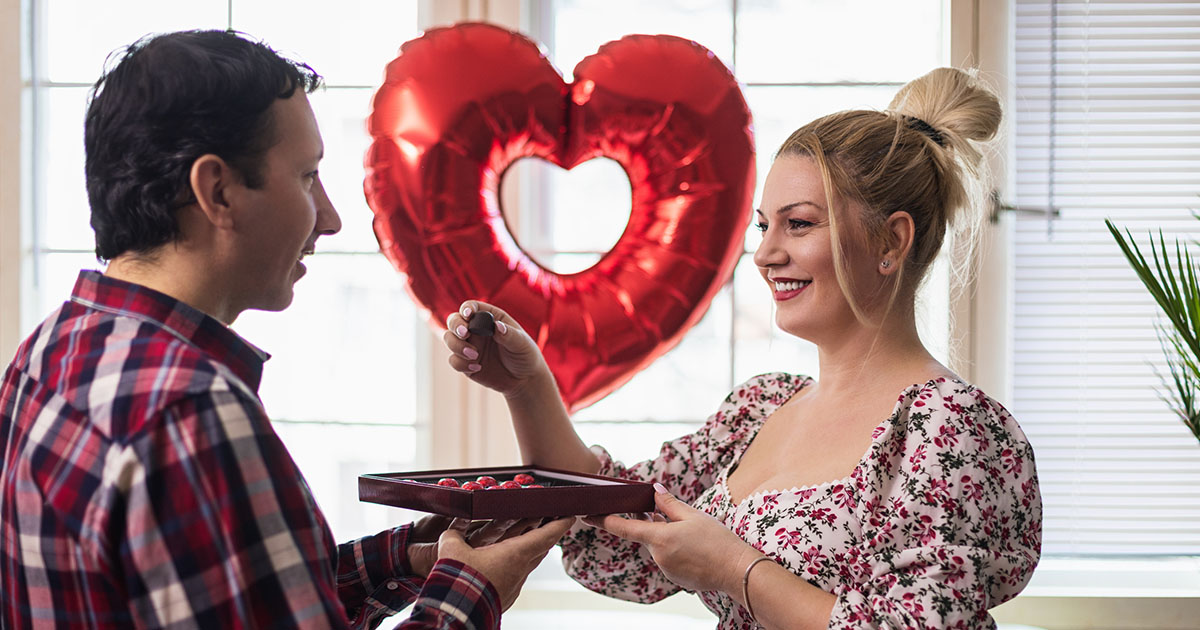Why Do We Buy Chocolate on Valentine's Day?

Today, Feb. 14, is Valentine’s Day and people around the globe will exchange a lot of chocolate, as well as flowers, and gifts. But why do we celebrate Valentine's Day the way we do?
Why do we give chocolate on Valentine’s Day?
The association of chocolate with love started with the Mayans, who were brewing cacao beans by 500 B.C. and later started using them in marriage ceremonies.
In 1861, candy maker Richard Cadbury started selling chocolates on Valentine’s Day. He decorated heart-shaped boxes with cupids and rosebuds, already symbols of romance with Victorians, and a Valentine’s Day tradition was born.
The history of Valentine’s Day
Historians disagree on the exact history of Valentine’s Day, but it started in Roman times. The most common story about its origin involves Valentine, a Roman priest. In 3rd Century A.D. Rome, Emperor Claudius II decreed that young men were not to marry so they could be better soldiers.
Valentine performed marriage ceremonies in secret and was jailed for it. Some believe that he fell in love with the jailer’s daughter while waiting to be executed and left her a note ending with “from your Valentine.” Others believe that Valentine was caught trying to help imprisoned Christians escape the Romans. He was executed on February 14, 269 A.D. and became a martyr and a saint in the Christian church. Roman Pope Gelasius I made February 14 Valentine’s Day in 496 A.D.
Another possible origin is the Pagan festival Lupercalia, which was celebrated by the Romans before Christianity became the dominant religion. It took place on February 15 and celebrated fertility and the mythical Romulus and Remus, founders of Rome. One tradition involved men picking the names of women from an urn and spending the day with them, which sometimes led to marriage. Gelasius outlawed the festival and replaced it with Valentine’s Day.
Valentine’s Day is not always happy
While Valentine’s Day is meant to be a fun way to spend the day with your significant other, it can lead to disagreements. Problems that lead to fights include setting the bar too high and making comparisons to friends or the media, couples not knowing what the other person expects, and small differences in preferences, like where to eat, becoming intensified on Valentine’s Day.
Many of us have friends who have had the stereotypical Valentine’s Day fight or have experienced it ourselves. It usually involves women thinking that men do not take Valentine’s Day seriously enough, which ends in disappointment and much complaining to their friends about their partner specifically and men in general. But this fight can go either way, and one study found that men have higher expectations for Valentine’s Day than women do. Men spend more than their female partners while also expecting women to spend more on them than women expect to spend on their male partners.
But fights are a good thing?
On the plus side, research suggests that couples who fight can have stronger relationships. Confronting problems results in more long-term success than sweeping them under the rug, and communication is essential to a healthy relationship. Psychologists point out that one way to fight fair is to take emotional responsibility for our feelings. Instead of blaming our partners for the way we feel, it is important to take responsibility for being happy and not expect it to be our partners’ responsibility.
Not sure what to buy?
But most of us can agree that avoiding a fight on Valentine’s Day is the way to go.
If you are not sure what to get for your significant other, why not take part in a Valentine’s Day fundraising campaign for a local or international animal rescue organization?
This Valentine’s Day, many shelters and rescues are asking people to donate instead of buying chocolates so that homeless animals can get some love too, and who can be mad about that?







